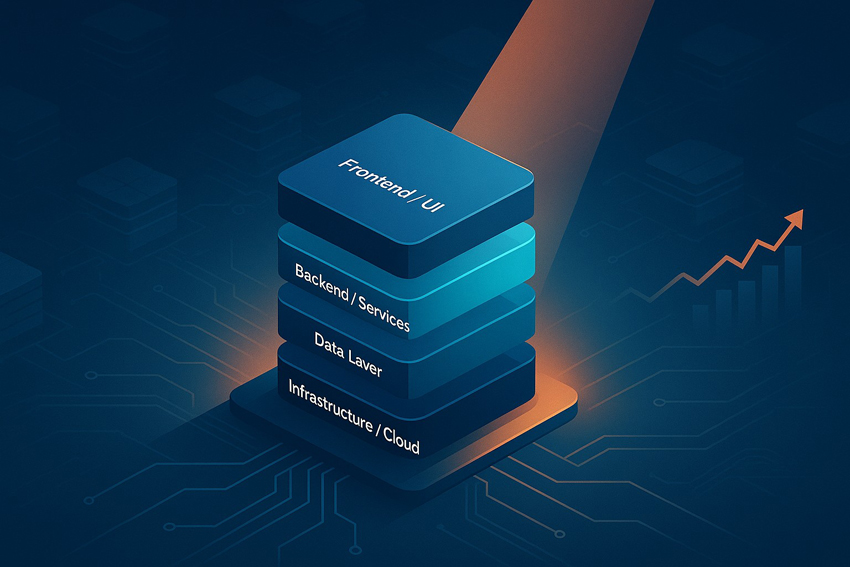The Small Practitioner: The Tech Stack: Building a competitive advantage in a crowded marketplace
The Small Practitioner: The Tech Stack: Building a competitive advantage in a crowded marketplace
By Brenda Keith
The legal profession is undergoing a profound shift as more attorneys leave large firms to join boutiques or start their own practices. Nearly one in three lawyers (31 percent) who departed firms in 2022 launched solo practices, according to Clio’s 2024 Legal Trends for Solo and Small Law Firms report. This migration reflects more than a career choice – it signals a transformation in how legal services are delivered, with solos and small firms offering greater flexibility, personalized service, and deeper client relationships.
The growing solo practice movement
Small practices are beginning to dominate the legal landscape, with firms of fewer than 6 attorneys comprising more than 75 percent of all law firms, according to the 2023 Thomson Reuters State of U.S. Small Law Firms report. This growth isn’t occurring in a vacuum – fundamental shifts in client expectations, technology accessibility, and the economics of legal practice are driving it. Solo practitioners consistently report higher client satisfaction and stronger professional relationships, offering personalized attention that Big Law attorneys often cannot. They can adapt quickly to client needs without navigating complex institutional structures.
However, success in today’s competitive legal market requires more than legal expertise and agility. While solo practitioners are growing in number and often excel in client satisfaction, they face a clear disadvantage: Limited access to enterprise-level legal software and resources. Without the deep bench of large firms, solos and small practices must strategically leverage technology to stay competitive.
This and subsequent columns will explore practical ways to use emerging tools, from cloud-based platforms to AI-driven solutions, to streamline operations and manage practices more effectively.
The technology gap: A critical challenge for small and solo firms
Technology is shaping the way small firms practice law. In fact, the market for legal practice management software continues to grow substantially, from $2.06 billion in 2024 to $4.81 billion by 2030, according to projections in the Legal Practice Management Software Market report. While this growth indicates robust demand, it also reflects the increasing cost for attorneys to remain competitive technologically.
Too often, solo and small firms feel this powerful software is out of reach for a variety of reasons. As legal professionals know, change is hard, especially when it comes to technology adoption. A 2020 Wolters Kluwer Future Ready Lawyer Survey found that roughly half of lawyers cited organizational issues – specifically including “a culture that fears change” – as a key reason law firms and legal departments resist adopting new technologies.
Some practice leaders think tech is too expensive. Some believe it is too challenging to learn or too complicated to use effectively. It’s this technology gap that impacts a solo practitioner’s ability to handle complex cases or compete for sophisticated clients.
Making the case for the right tech support
Increasingly, solo and small practices rely on all-in-one practice management software to stay competitive and efficient. But how do you demonstrate that this is the right direction for your firm? Build a compelling case.
Saving money
All-in-one platforms integrate core functions like case and document management, time tracking, billing, calendaring, and client communication, eliminating the need for budgeting, training, and maintaining multiple disconnected tools. Cloud platforms are also more cost-effective than on-premises systems because they don’t require heavy IT infrastructure, dedicated servers, or ongoing maintenance. Vendors typically include regular security updates, encryption, and compliance features, ensuring data protection without the expense of in-house IT expertise.
More flexibility
Cloud-based solutions have become the standard for solo practitioners because they offer secure, centralized, on-demand access to case files and client data from any location or device. This flexibility is particularly valuable for attorneys who travel, work remotely, or meet clients outside the office. By centralizing workflows, attorneys can automate routine administrative tasks, reduce errors, and spend more time on billable work or business development, while keeping overhead low and operations scalable.
Work smarter, not harder
These scale-to-size tech solutions are designed to help solo and small firm attorneys work smarter and more efficiently, empowering them to take on a range of new clients and bigger cases. With this powerful technology on their side, solo and small firm attorneys are better equipped to bid competitively on complex cases while maintaining healthy profit margins. In many instances, having a fully realized technology stack can mean the difference for a small firm between handling large cases in-house or referring them to larger firms. Many platforms also provide built-in analytics, helping lawyers track productivity, revenue, and client trends to make smarter business decisions.
The competitive future
By strategically building a technology stack that works for their practice, solo practitioners can carve out their own distinct space, focusing less on administrative work and more on case and client success.
Next in this series: AI-enabled tech solutions that deliver exceptional, efficient, tech-savvy legal counsel.

Brenda Keith, Chief Marketing Officer at Lexitas, is a seasoned marketing and sales leader with a proven history of driving revenue growth and transforming business outcomes. With expertise in brand strategy, digital marketing, and sales enablement, she has built high-performing teams and implemented data-driven programs to enhance client experience and operational efficiency. She can be reached at [email protected].
Share this story, choose a platform
Brought to you by BridgeTower Media
Free Weekly Newsletter
Recommended content
Serving Clients : How cognitive empathy turns legal expertise into real value
Serving Clients: How cognitive empathy turns legal expertise into real value By Brenda Plowman Clients often receive advice that is [...]
Who are you without the law?
The harsh realities of retirement tend to weigh more heavily on lawyers than on most other professionals. Read more @ [...]
Content creation for lawyers made simple (and better)
Chances are, most attorneys already know what their promotional content should contain based on years of dealing with clients and [...]
Tips on how to introduce yourself
By using just a few well-chosen words, attorneys can make a lasting impression when they introduce themselves to others. Read [...]






